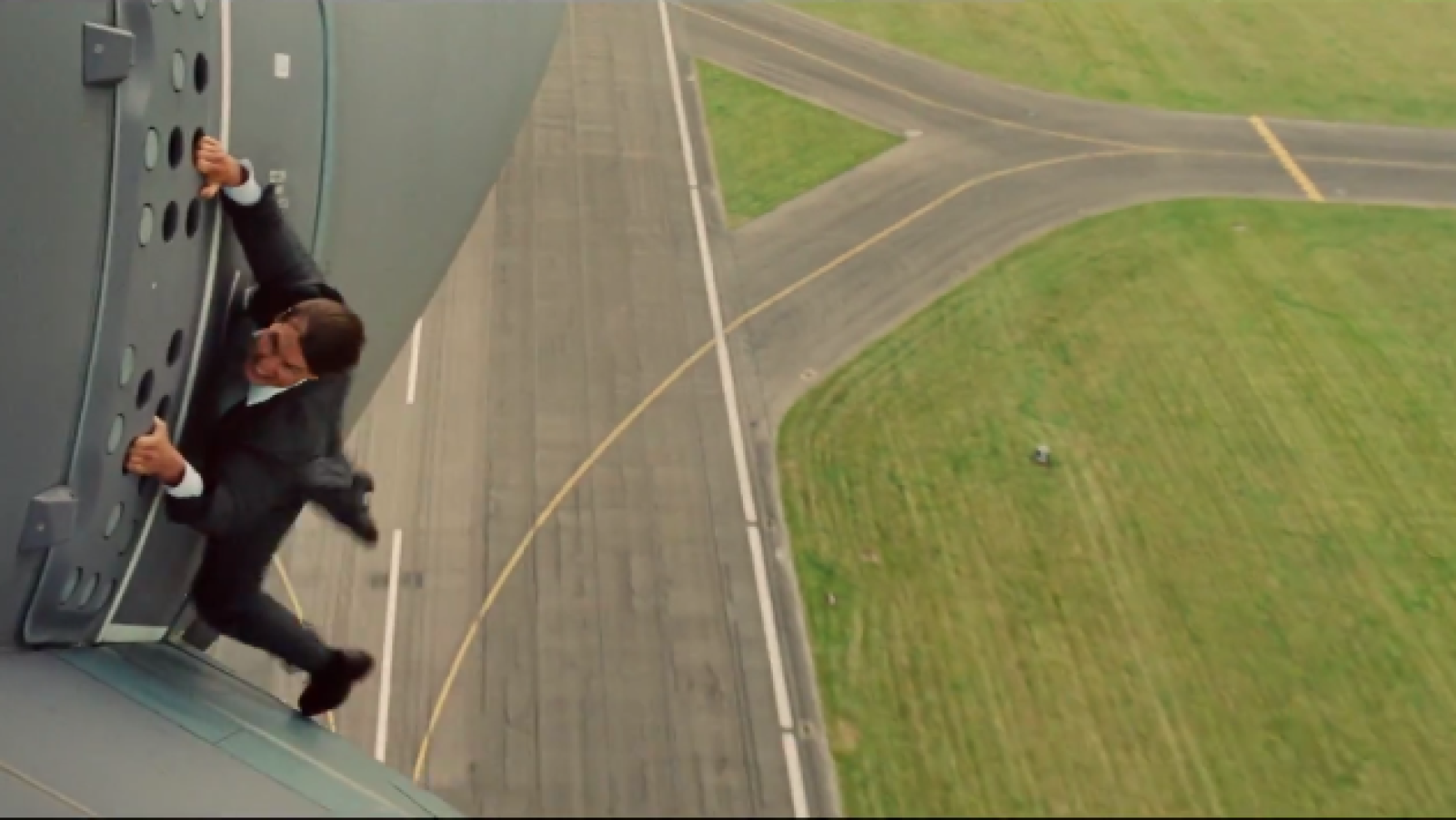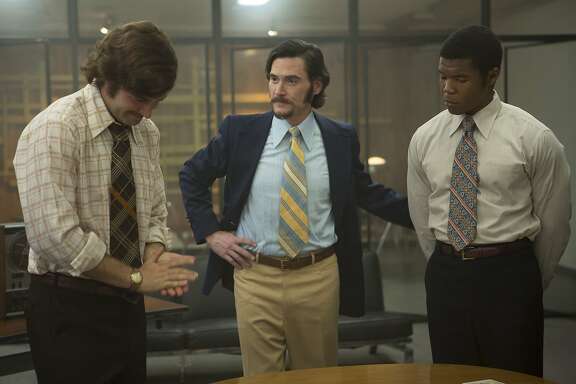In Christopher McQuarrie’s fun, over-the-top “Mission: Impossible—Rogue Nation” (the fifth installment in the “Mission: Impossible franchise) Ethan (played again by Tom Cruise) puts himself in a number of high stress, gutsy situations. To his credit, he handles it all with his normal sense of cool. He’s both a fugitive from the C.I.A. and the target of a super secret terrorist organization called The Syndicate yet he remains laid back and unfazed. Cruise is his usual charming, rugged self; if you’ve never liked his action movie persona before, “Rogue Nation” won’t change that.
However, even Cruise fans might agree he’s upstaged by his
co-star Rebecca Ferguson. That name probably doesn’t sound familiar but after
this movie it should be. As the British spy Ilsa, Ferguson is sexy,
intelligent, tough as hell, and oozes charm and wit in practically every scene.
She surpasses her male co-stars at every turn, sometimes literally going toe to
toe with them (she gets into a knife fight with a baddie near the end) and
transcends her token female status.
Ferguson out-Cruises Cruise and Ilsa is frequently the most
compelling character. You can trust Ethan Hunt and his Impossible Missions
Force (IMF) teammates Benji, (the always funny, always likable Simon Pegg)
William (Jeremy Renner) and Luther (Ving Rhames). And there’s a villain that you know is going
to be bad from start to finish but with Ilsa you’re never sure what side she’s
on, where her loyalties stand and what her personal motives are. She’s a true Femme
Fatale and I would love to see a future “Mission: Impossible” movie with just
her.
Overall “Rogue Nation” is a big movie full of grand sweeping
camera movements, a loud energetic score by Joe Kraemer and a story that gets
increasingly outrageous and far-fetched. It also has some extraordinary,
inventive action set pieces. Since the scene featuring Ethan hanging from a
military plane as it takes off has been advertised the most McQuarrie wisely
puts it at the beginning to start the movie off with a bang (if you’re feeling
drowsy, rest assured, the roaring of the jet engines and Cruise dangling from
the door like a loose part will wake you up). There’s also a fight scene that
takes place on a catwalk, perfectly timed with a Viennese Opera performance and
the sequence in which Ethan swims through an underwater vent is just as
claustrophobic and tense as it sounds.
While these three set pieces happen (along with a few others)
you remain transfixed. They’re impeccably staged, the editing isn’t too chaotic
and overbearing and, as far as I can tell, they’re done sans green screen. You
know exactly what’s going on and how each character fits into the action. This
sense of coherence, continuity and authenticity makes them more substantial. Also,
the fact that Cruise does all his own stunts adds an additional layer of
authenticity and immediacy to the action sequences. That’s him hanging off a
real airplane and swimming through the underwater vent while holding his breath
for six (!) minutes. I can’t even hold my breath for a minute thirty. There’s a
legitimate sense of danger pulsing through these moments, a chance that Ethan
(and Cruise) may not make it out.
At the same time the action can be a little much at times. In addition to those clever primary action sequences discussed above, there are a whole bunch of less exciting more routine sequences—car chases, shoot outs, foot chases etc. The movie is basically ninety percent action, which can feel taxing. Some scenes go on longer than they should; for example, there’s a lengthy motorcycle chase in Morocco involving Ethan, Ilsa and a few anonymous bad guys that ends with Ilsa outsmarting Ethan and getting away. The sequence itself is wonderfully staged but for how simply it’s resolved, the chase needs to be trimmed down. And it lacks the creativity of those primary set pieces.
Another issue with “Rogue Nation” is McQuarrie’s script isn’t resistant to cliché and while cliché isn’t always bad there are a few glaring ones. Various flash drives—containing “important data”—are stolen, transported, traded and fought over. Flash drives have become the Holy Grail of the digital age and in action movies they’ve become overused. There has to be a more interesting McGuffin for the characters to pursue. On top of that The Syndicate is just your standard issue movie terrorist organization--lead by a well-dressed, well-groomed, one-dimensional rogue agent (played by a brooding, soft spoken Sean Harris) who eats Sushi. The more action movies I watch, the more I notice that the villains are being treated like afterthoughts.
These reservations considered I still had a blast watching
“Rogue Nation.” Anytime the movie starts to drag, a clever quip or a bit of
exciting goofy action picks it back up. While those centerpiece action
sequences are worth the price of admission alone Ferguson is the best, most
refreshing thing about the movie. I can’t wait to see what she does next.













